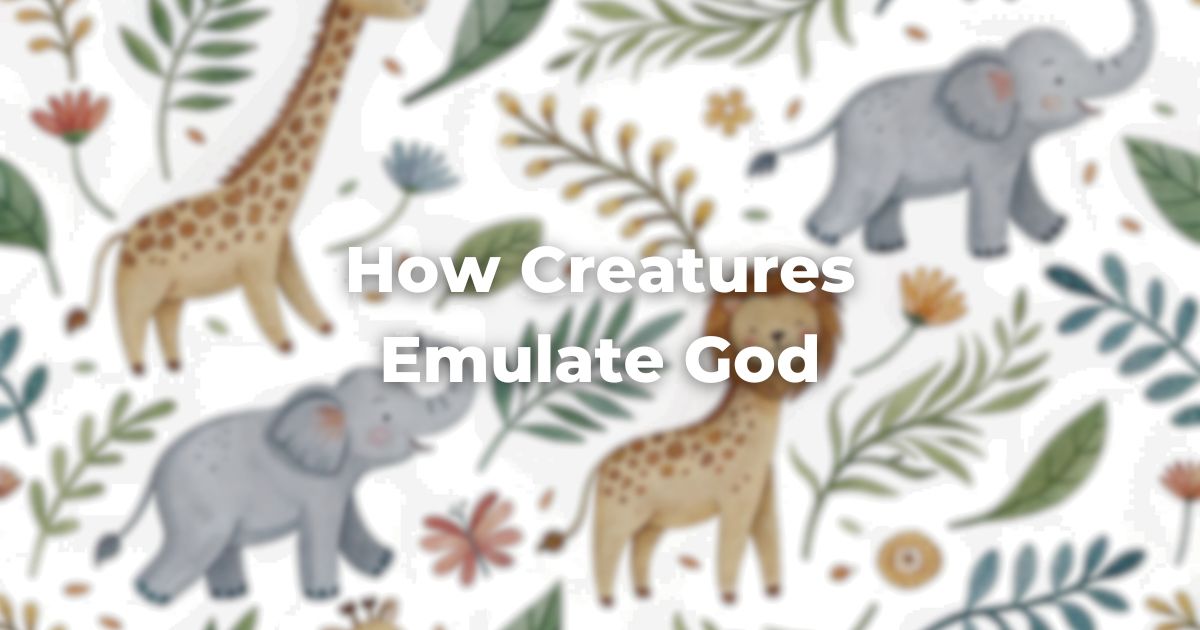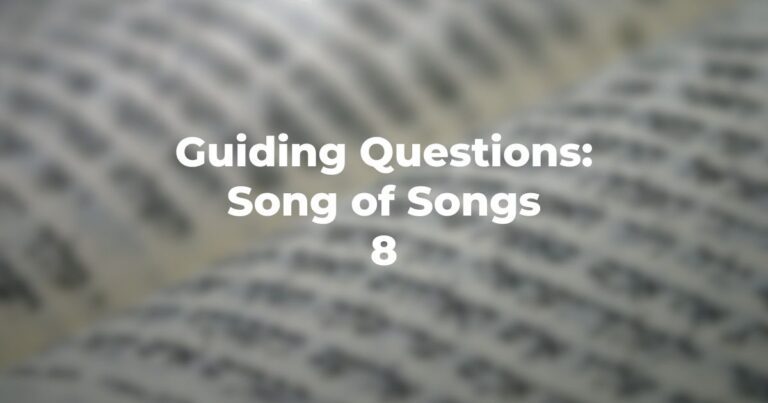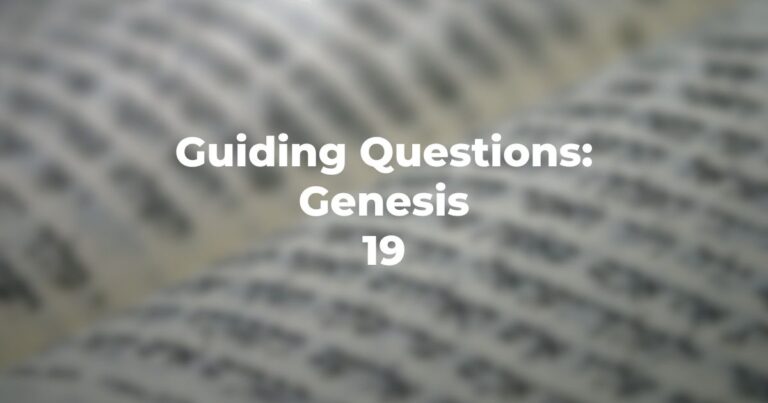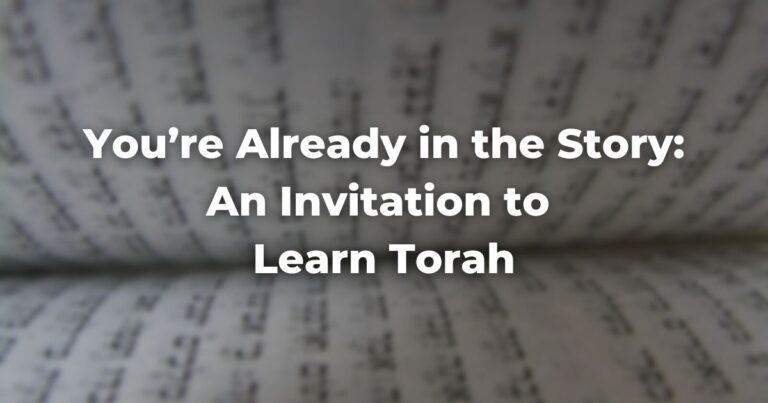Originally given as a senior sermon at JTS.
In the first days of the new year, with the Days of Awe in the rear view, we read the story of Bereishit, the story of our creation that reminds us of who we are and how, at the very beginning, we learned to be human from the rest of God’s creatures.
In the second chapter, when Adam first arrives in the Garden of Eden, he is the only one there. There are plants and trees, but no animals. He’s brand new to the world, and lonely, and he doesn’t have the words to articulate what’s missing. But God understands and says: “It is not good for Adam to be alone; I will make a fitting counterpart for him.” So, God forms from the earth “all the wild beasts and all the birds of the sky.”
All of a sudden, the Garden teems with life, and sound, and color. And as soon as God creates the animals, God brings them to Adam, “to see what he would call them; and whatever Adam called each living creature, that would be its name.”
It’s at this moment where Adam discovers his capacity to speak. He discovers language, and as he invents the name of each animal, Adam speaks his very first words. This is the first-time someone other than God speaks in the TorahRefers to the first five books of the Hebrew Bible, the Tanakh, also called the Five Books of Moses, Pentateuch or the Hebrew equivalent, Humash. This is also called the Written Torah. The term may also refer to teachings that expound on Jewish tradition. Read more.
It’s easy to miss this moment because the narrative of Bereishit moves fast. And so do our traditional commentators, who interpret this scene in the context of what comes next. They say that the animals reveal to Adam that he’s still alone—that he has no “ezer k’negdo,” no mate, no fitting counterpart.
One can read this scene and understand that as soon as Adam meets the animals, he’s disappointed, and lonely again. But I want to slow the story down and dwell in the scene where Adam names the creatures because here, Adam’s first companion isn’t Eve, it’s nature.
I read tenderness into the way God carries each new animal to Adam—the platypus, the grizzly bear, the grasshopper! Pointing out their shapes and the way each moves—each creature is different from the next.
And in this scene, I see God do something that feels familiar to me now. As parents, we imitate the story of Bereishit and surround our youngest children with a garden of God’s animals.
Come sit in the little room where my babies sleep and count the creatures that live here: in pictures on the wall, as soft stuffed animals, and in hooded towels with ears sown on the top: I see a tiger and a hippo, a bear and a porcupine, a snow leopard, and even a red heifer.
We teach babies language with the names of animals, asking them to identify each one and the sounds they make. But why? Why do we reflexively imitate God in this story and surround our children with the likenesses of animals?
Part of the answer lies in a beautiful midrashThis word is used in two ways, as both a concept and a literature. As a concept, midrash is the expansive interpretation of biblical texts. The term is used to describe the practice of rabbinic interpretation. As a text, it refers to specific collections of interpretations, particularly from the third to ninth centuries in the Land of Israel and Babylonia. Plural: Midrashim
Read more from Bereishit Rabbah suggests that God casts the animals as Adam’s teachers because they give him perspective on his own identity. After meeting the animals, God asks the first human:
(TENDERLY)
‘And you, what is your name?’ He replied: ‘It is appropriate that I be called Adam, as I was created from the ground [adama].’ And God asked another question: ‘And Me, what is My name?’ And Adam replied: ‘It is appropriate to call you my Lord [adonai], as You are the Lord over all your creatures.’
Here, Adam comes to understand who he is in the context of what he knows about the animals … And beyond this self-knowledge, Adam learns about God … each of those animals is a different reflection of God’s imagination, so that when Adam names them, he learns to name God too.
I imagine that God derives joy from watching Adam learn and grow. Perhaps we imitate God and surround our children with animals because they also offer us, as adults, a source of enchantment and a way back to the Garden… A way back we need so very badly.
The American writer, Wendell Berry, captures this longing for a way back in his poem “The Peace of Wild Things” where he writes:
When despair for the world grows in me
and I wake in the night at the least sound
in fear of what my life and my children’s lives may be,
I go and lie down where the wood drake
rests in his beauty on the water, and where the great heron feeds.
I come into the peace of wild things
who do not tax their lives with forethought
of grief. I come into the presence of still water.
And I feel above me the day-blind stars
waiting with their light. For a time
I rest in the grace of the world, and am free.
Wendell Berry retreats to nature because the animals offer him a wider perspective on his place in the world. They remind him of different ways of living into the uncertainty of the future and of accommodating the knowledge that there are storms on the horizon. The animals remind us of our place in the family of creation. There is peace to be found with this perspective.
When I hold this poem up to the narrative of Bereishit, I see God seek out the peace of the wild things too. In the third chapter of Bereishit, we read that God is: מִתְהַלֵּךְ בַּגָּן לְרוּחַ הַיּוֹם “moving about the Garden at the breezy time of day.”
It’s an enigmatic phrase … and it’s tempting to anthropomorphize God here … I imagine God wandering through dappled shade beneath changing fall leaves. I imagine that this is what it looks like for God to rest in the grace of the world after finishing the work of creation.
As we roll the Torah back to Bereishit, at this breezy time of year, this scene offers us another way to emulate God:
It’s a reminder that the Garden still grows outside our door. To quote a song by the Wood Brothers, “We never left the garden, it was a trick of the mind, separated us from everything we were part of the whole time.” Though there is so much brokenness in the world, beauty grows tenaciously alongside it. God’s creatures still teach our children to speak and lend themselves to their imaginations. The Garden still teaches us our own names, and God’s name too.
And you don’t have to go far to find the peace of the wild things. Even in New York City, even in mid-October before the first frost, if you sit in the Seminary courtyard, you’ll hear a symphony of crickets playing in the leaves and sparrows chatting in the Ginko trees.
And there’s a garden planted among the words of our siddur too. Every morning, we begin our prayers with Pesukei D’Zimra, psalms of praise composed in images from the natural world. We have a bad habit of rushing through this poetry … Slow down. Count how many different animals appear in language of the Psalms.
Slow down and linger on the first blessings of our morning liturgy. Pay attention to the name we give to God here: “Baruch she’amar v’haya ha’olam,” blessed is the One who spoke and created the world.
Offer your own praise and the names for God that you’ve learned: Blessed is the One who planted the Garden and created the animals, our first companions.
And blessed is the One who gives us the gift of language and imagination, and who teaches us how to share this with our children.
And blessed is the One who gives us a way back to rest in the grace of the Garden and to be free.
Author
-

Sarah Rockford is a fifth-year rabbinical student at the Jewish Theological Seminary in New York. She hails from Denver, Colorado and graduated from Colby College in Maine in 2015. Sarah remains a proud member of Maine’s vibrant Jewish community where she lived and worked until relocating to New York for Rabbinical school. She now works for Chizuk Amuno Congregation in Baltimore, Maryland and looks forward to joining the community full time in the summer of 2026 as the assistant rabbi. Sarah lives in Harlem with her wife and twin babies.
View all posts




